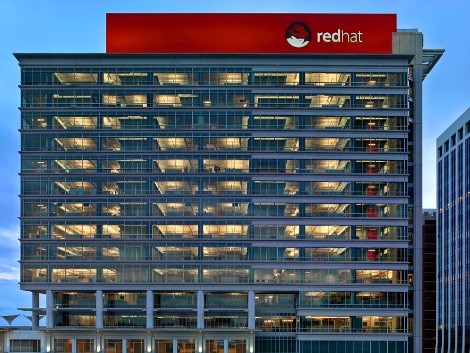Fork Available as Red Hat Ends Life of CoreOS Container Linux
A German company pitches a "friendly fork" as a drop-in replacement for the cloud native operating system whose end of life comes in less than two weeks.

Anybody still using CoreOS Container Linux needs to start shopping for a replacement platform. That's according to Red Hat, which recently announced that the container-focused operating system will reach its end of life on May 26, when its last bug-fix and security update is rolled out.
"Any bugs or security vulnerabilities discovered after that date will not be fixed," the company said.
The Container Linux listing on Amazon Web Services Marketplace has already been made unavailable to new subscribers, although it remains available to existing subscribers, as do downloads from the CoreOS download page. Red Hat said that on September 1, downloads will be removed, update servers will be shut down, images will be removed from AWS, Microsoft Azure, and Google Compute Engine, and GitHub repositories will become read-only.
"Documentation will continue to exist for as long as is practical to aid migration to other operating systems," the company added. "Existing Container Linux machines will continue running, but will no longer be able to download updates. New CoreOS Container Linux machines will not be launchable in public clouds without prior preparation."
With end of life less than two weeks away, the announcement should have plenty of DevOps teams scrambling for a replacement.
"We know this timeline is aggressive," Red Hat said. "We've tried to provide the longest possible migration period consistent with our ability to maintain the OS. We will be taking the unusual step of deleting CoreOS Container Linux artifacts and images after September 1 to discourage continued use after the OS is no longer receiving security updates."
From Startup to Red Hat
In many ways, Container Linux is to containers what embedded Linux distributions are to the Internet of Things. It's a Linux distribution that's been minimized to provide only the functionality required for deploying applications inside of software containers while providing built-in service discovery and configuration sharing. DevOps teams like it because of its focus on automation, ease of app deployment, security, reliability, and scalability.
The platform started life as CoreOS, released by a startup with the same name that also developed Etcd, the open-source distributed key-value store that's now a Cloud Native Computing Foundation project, and the Kubernetes platform Tectonic that's now part of Red Hat OpenShift. In 2018 Red Hat spent $250 million to acquire the startup and it's technology in a deal that also included services of CoreOS's co-founder and CTO Brandon Philips, as well as CEO Alex Polvi. Earlier this year, both announced on Twitter that they had left the company with no reason given.

2005
According to Red Hat, the freely available Fedora CoreOS is Container Linux's official successor, although it admits that it's not exactly a drop-in replacement for Container Linux for all uses. It doesn't include built-in support for Azure, DigitalOcean, GCE, Vagrant, or the Container Linux community supported platforms, for example, and the rkt container runtime is not included. Additionally, Red Hat says the Fedora version provides only "best-effort stability," which means it "may occasionally include regressions or breaking changes for some use cases or workloads."
If the free Fedora version doesn't fit the bill, those who wish to stick with a Red Hat solution will need to spend money on an OpenShift subscription, which includes RHEL CoreOS as an integrated component.
Flatcar's Drop-in Solution
There is another option, however. Kinvolk, a German-based open source company focused on cloud infrastructure maintains Flatcar Container Linux, a "friendly fork" of Red Hat's CoreOS Container Linux that it plans to continue maintaining after Red Hat's product becomes a historical asterisk. On its website, the company says Flatcar is intended as a drop-in replacement for CoreOS Container Linux, that it doesn't differ "in any significant way" from Red Hat's current version, and that any minor changes that might warrant consideration are covered in online migration documentation on its website.
"We will continue to actively develop and support Flatcar Container Linux; updating key components such as the Linux kernel, systemd and Docker," the company said in an online FAQ. "We will also maintain support for Flatcar Container Linux as a drop-in replacement for CoreOS Container Linux for an extended migration period."
For those who need or want it, Kinvolk also offers commercial support and custom engineering services around Flatcar Container Linux.
Read more about:
Data Center KnowledgeAbout the Authors
You May Also Like








.jpg?width=700&auto=webp&quality=80&disable=upscale)
